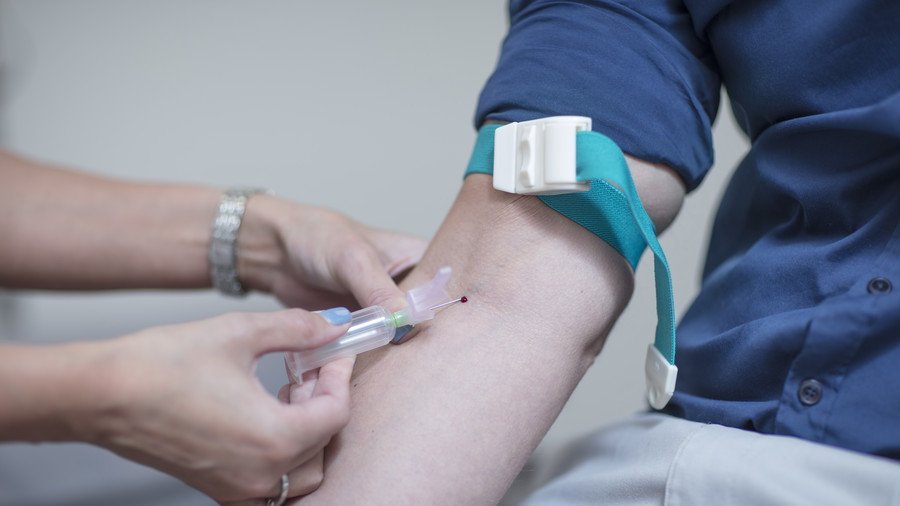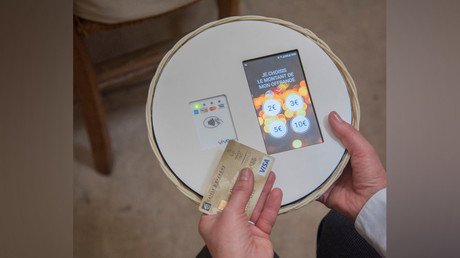$500 blood test promises to detect cancer before it develops

A $500 blood test could soon be used to detect up to eight kinds of tumors before they have a chance to spread to other parts of the body.
Researchers from Johns Hopkins School of Medicine in Baltimore developed the test, known as CancerSEEK, in a study involving more than 1,000 patients. Their study published in the journal Science, detected cancer in 70 percent of participants.
READ MORE: Put the phone down: US health officials warn of cancer & infertility risk
"This looks promising but a significant amount of further research is needed before we can even contemplate how this might play out in screening settings," Mangesh Thorat, deputy director of the Barts Clinical Trials Unit at Queen Mary University of London and who was not involved with the study, told AFP.
The percentage of successful tests varied for different types of cancer, ranging from 98 percent in people with ovarian tumors, to 33 percent in people with tumors of the breast. The test, which works by assessing mutations in 16 cancer genes, provided positive results for eight forms of cancer overall, including ovary, liver, stomach, pancreas, esophagus, colorectal, lung and breast. Currently, there is no screening test for five cancer types – ovary, liver, stomach, pancreas and esophagus – for people of average risk.
In 83 percent of cases the CancerSEEK test, which has a proposed cost of $500, could pinpoint the area where the cancer was anatomically located.
Virus injected into blood could treat brain cancer https://t.co/6ZqlvB6nyOpic.twitter.com/VfJOEnl3Ez
— RT (@RT_com) January 4, 2018
Interestingly, the team also carried out a control experiment on more than 800 people with no history of cancer. Only seven were flagged as positives, meaning researchers could not be certain if the results were false positives or the seven individuals had early-stage cancer but were showing no symptoms. The study claims that even if these results are indeed false positives the specificity rate is still around 99 percent, making it much more accurate than many conventional tests.
Nicholas Turner, professor of molecular oncology at The Institute of Cancer Research in London, also told AFP that the one percent false positive rate "could be quite a concern for population screening.” Prof Turner added: “There could be a lot of people who are told they have cancer, who may not have it.”
READ MORE: Night shift work poses increased cancer risk to women – study
The researchers will now embark on a wider-scale study before CancerSEEK can be made commercially available, beginning with a study involving 10,000 healthy individuals designed to assess whether the test can predict who ultimately develops cancer.
Theodora Ross, director of UT Southwestern Medical Center’s Cancer Genetics Program, who was not involved in the study, tempered the results somewhat, telling Axios that the patient cohort should not have included Stage III cancer patients. Ross said that ovarian cancer patients in particular have biomarkers that are easier to detect and can skew the sensitivity results of blood tests.
Think your friends would be interested? Share this story!














